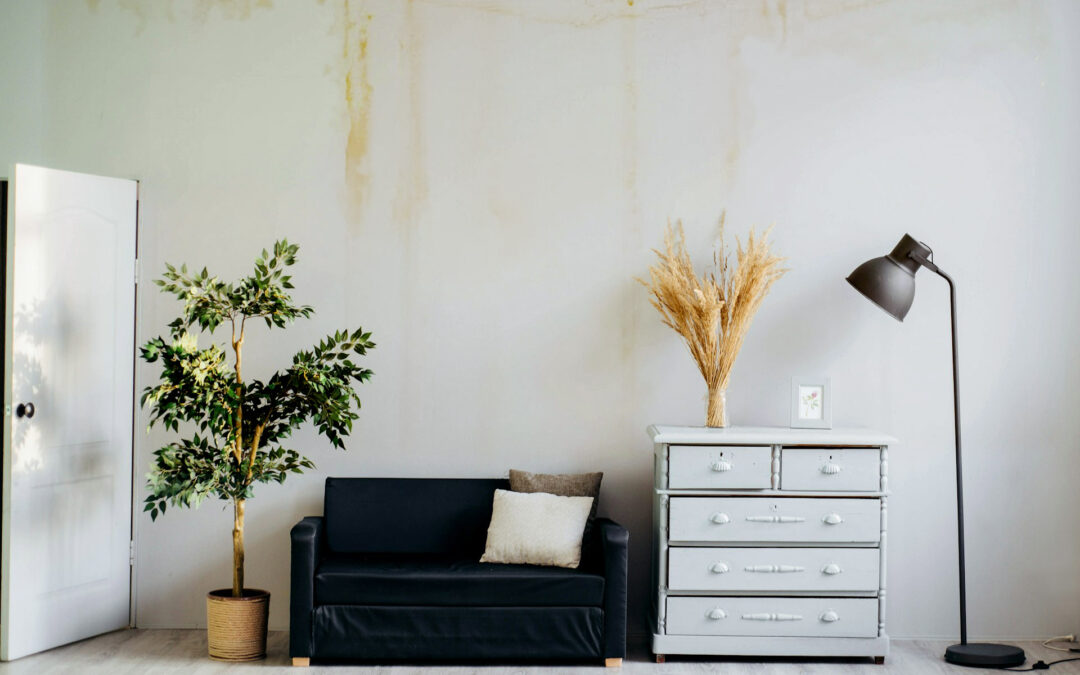Maintaining the physical integrity of your home is extremely important for every homeowner. Not only does it keep you and your loved ones safe from the elements, but it also helps improve your home’s curb appeal and value. In our March post, we will discuss how to detect water leaks inside a wall and what to do about them.
Telltale Signs of a Leak
The following are signs that might help you identify a water leak in your wall:
- Watch for standing pools of water near a wall.
- Check for discoloration on a wall.
- Peeling paint or wallpaper.
- Inspect your walls occasionally for a change in texture.
- Take notice of any signs of mold or mildew.
- Detect any musty smells.
Ways to Confirm a Leak
Read Your Water Meter – If you suspect you have a leak locate your water meter, read the number of gallons consumed, and record the number shown. Then, shut off all faucets, showers, toilets, and appliances that rely on water like dishwashers, sprinklers, and washing machines. Prevent using water in your home for the next three hours. Reread the water meter. If the number is larger, you have a water leak somewhere in your home.
Buy a Moisture Meter – This device is used to measure the moisture content in materials. The standard reading for drywall, concrete, and other masonry components is less than one percent.
An Infrared Camera – Can reveal heat emanating from your wall and show the range of temperatures it senses using different colors. The camera can diagnose water leakage behind a wall since it displays blue or purple to determine the wettest or coldest spots.
Cut Into Your Drywall – This step is only suggested as a last resort when other methods have not been successful. It is important to note, the location of a water stain on drywall may not be the same as the location of the leak source.
Solution
Leaks occur when your pipes become worn in some places or the joining between pipes become weak. If you discover a leaky pipe, identifying the source and stopping any further water escaping should be your top priority. Water damage is bad and leads to all manner of interrelated consequences. In fact, water damage can destroy your home faster than you might think. Within the first 24 hours of a leak, mold development, damage to floors, walls, and electrical components, and even structural issues can occur.
Depending on where the water came from, water damage can also lead to health concerns, as sitting water often features all manner of germs and bacteria.
If you have taken the above steps and established that a leak behind a wall is present, it is time to call a licensed plumber to remedy the problem before serious damage occurs.
No matter where you live in Southern California, SoCal Plumbers can recommend licensed and insured plumbing technicians. Our service area includes Kern County, Los Angeles, Orange, Riverside, San Diego, San Bernadino, and Ventura. Call us today or visit our website at https://socalplumbers.com/.
For more information on how plumbing works visit https://socalplumbers.com/. If you have found this article to be informative and you want to continue to receive future information from the SoCal Plumbers, please go to https://socalplumbers.com/email-signup/ and sign up.


